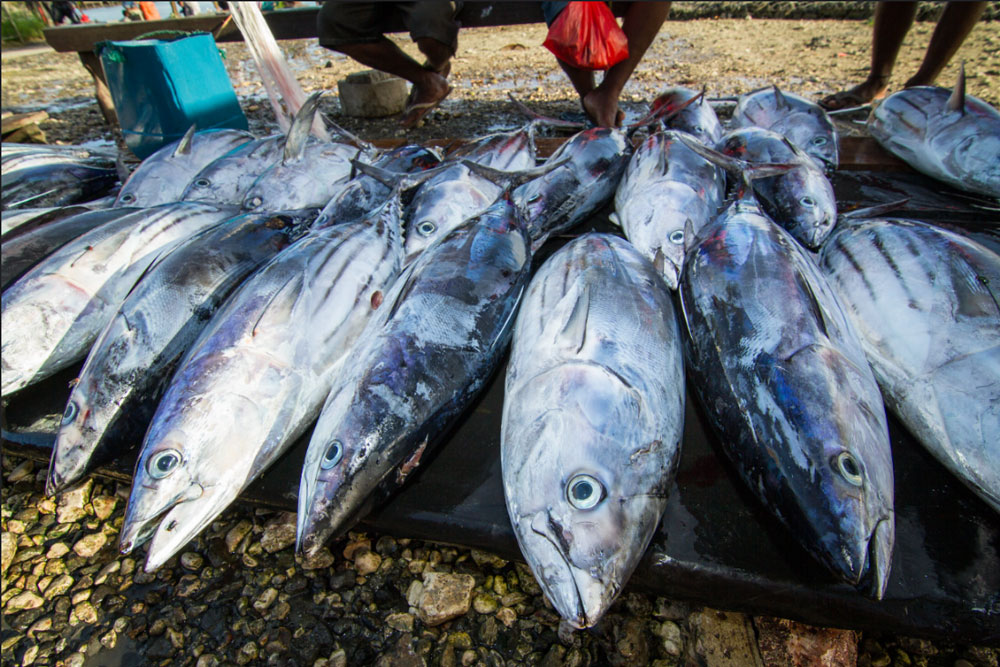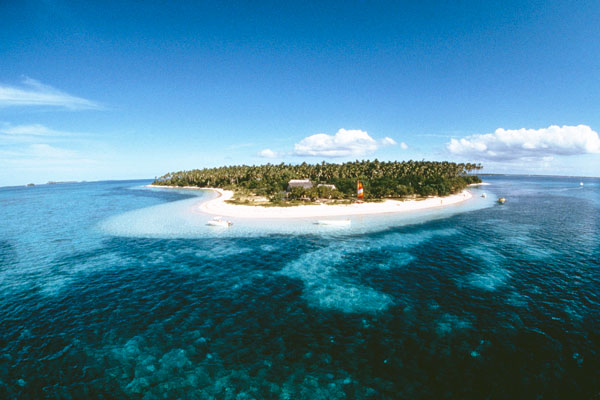We are a longstanding supporter of sustainable Pacific fisheries which are crucial for economic development, food security, nutrition and environmental sustainability. Australian support is largely implemented through the Forum Fisheries Agency and the Pacific Community. Our fisheries assistance aims to support Pacific-led priorities as outlined in the following regional documents:
- Future of Fisheries: A Regional Roadmap for Sustainable Pacific Fisheries
- A New Song for Coastal Fisheries-Pathways to Change
- Pacific Framework for Action on Scaling up Community-based Fisheries Management: 2021-2030
- Pacific Islands Forum: 2050 Strategy for the Blue Pacific Continent
Related initiatives
Pacific Islands Forum Fisheries Agency Partnership
$5 million per year
We are a founding member of and partner to the Pacific Islands Forum Fisheries Agency. Australia’s strong partnership with the Forum Fisheries Agency serves to strengthen fisheries management and cooperation in the Pacific so Pacific islands countries and territories benefit from the sustainable use of tuna.
We also support the Forum Fisheries Agency to operate the Regional Fisheries Surveillance Centre that coordinates regional operations to combat illegal, unreported and unregulated (IUU) fishing and links with wider law enforcement authorities.
Combatting illegal, unreported and unregulated (IUU) fishing
Australia implements programs to help regional partners tackle IUU fishing, including through capacity building to monitor and enforce compliance with fisheries rules, coordinated engagement under Australia's Pacific Maritime Security Program and improving visibility of maritime activity for fisheries and other law enforcement authorities with satellite data and training for officials.
The Pacific Community (SPC) Fisheries, Aquaculture and Marine Ecosystems Division support
$3 million per year
Australia is a founding member and partner to the Pacific Community, which is underpinned by the Partnership between the Pacific Community and the Government of Australia.
Our funding to SPC’s Fisheries, Aquaculture and Marine Ecosystems (FAME) Division supports work to provide scientific assessments and technical capacity building to Pacific island countries and territories to sustainably manage offshore fish stocks, primarily tuna, and coastal fisheries that support food security.
Fisheries and Ocean Research Vessel
$25 million
Australia is contributing $25 million, through a Partners in the Blue Pacific initiative, to assist the Pacific Community to acquire a dedicated fisheries and oceans research vessel to conduct essential science and inform responses to the impacts of climate change.
Community-based fisheries management
$8 million (2021-2025)
DFAT also partners with the Australian Centre for International Agricultural Research (ACIAR) and the Australian National Centre for Ocean Resources and Security (ANCORS) to deliver community-based fisheries management to enhance food security, nutrition and improve livelihoods. The third phase of support ($8 million, 2021-25, including $2 million from ACIAR) aims to scale up existing community-based fisheries management programs in Kiribati, Solomon Islands and Vanuatu and extend the framework across the region. An example of the benefits of this program can be seen in this video from Vanuatu.
Related documents*
| Name of document | Year published | Type |
|---|---|---|
| End of Investment evaluation into DFAT’s Fisheries Development Assistance in the Pacific 2010-2025 | 2026 | Evaluation |
| Evaluation of DFAT Funding Support to the Pacific Community’s Fisheries, Aquaculture and Marine Ecosystems Division | 2024 | Evaluation |
| Pacific Community Fisheries, Aquaculture and Marine Ecosystems Division Business Plan 2022-2027 | 2022 | Business Plan |
| Pacific Framework for Action: Community-based Fisheries Management 2021-2030 | 2021 | Regional Framework |
| Pacific Maritime Boundaries Program - End of Investment Evaluation Report and Management response | 2020 | Evaluation Report and Management response |
| Mid-term Review Report of the Community Based Fisheries Management Phase 2 | 2019 | Mid-term review |
| Pacific Islands Forum Fisheries Agency - Strategic Plan 2020-2025 | 2019 | Strategic plan |
Related links
- The Pacific Community: Division of Fisheries, Aquaculture and Marine Ecosystems
- Pacific Islands Forum Fisheries Agency
* The Department of Foreign Affairs and Trade (DFAT) is committed to high standards of transparency and accountability in the management of the Australian aid program through publishing information on our website, including policies, plans, results, evaluations and research. Our practice is to publish documents after the partner government and any other partners directly involved in the delivery of the initiative have been consulted. Not all material published on this site is created by the Australian aid program and therefore not all documents reflect our views. In limited circumstances, some information may be withheld for reasons including privacy and commercial sensitivity.
** Documents on this page may not meet the Web Content Accessibility Guidelines (WCAG) 2.1. If you require fully accessible copies of documents, please contact OTP.AidEnquiries@dfat.gov.au


